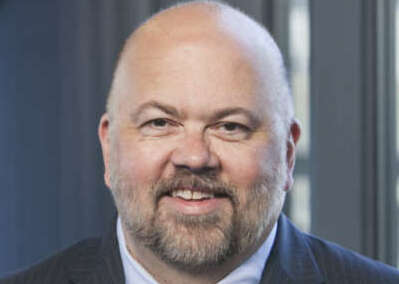
Political Appointee Burrowing Prevention Act: Good idea or not?
Critics say burrowing is not based on merit, and is a way for an administration to leave its sympathizers in place for years after it is gone.
This column was originally published on Jeff Neal’s blog, ChiefHRO.com, and was republished here with permission from the author.
On Oct. 3, I wrote a post asking “Should political appointees be barred from career jobs?” My post was prompted by the ongoing discussion of “burrowing in” by political appointees. Although the amount of burrowing in the previous administration was one-third of that during the George W. Bush administration, some folks still believe any amount of burrowing is too much. They say that burrowing is not based on merit, and is a way for an administration to leave its sympathizers in place for years after it is gone.
If we assume that is true, then what is the solution? The House Committee on Oversight and Government Reform is considering a bipartisan bill — The Political Appointee Burrowing Prevention Act — that is offered as a solution to the burrowing issue. The bill was first introduced in February 2017. The first version needed a lot of work, but updated language is now being considered. The new version is much better, but still could use some work. Here are the basics of the bill:
A ban on appointments in the first two years after leaving a political job
• The bill says: “Notwithstanding any other law, rule or regulation, during the 2-year period following the date a political appointee separates from a political position, such appointee may not be appointed to any career position in the civil service.” “Career” also includes similar excepted service jobs.
• The two-year ban does not apply to a political appointee who “has not personally and substantially participated in any particular matter while employed in a political position.” The bill defines “participated” as “an action taken as an officer or employee through decision, approval, disapproval, recommendation, the rendering of advice, investigation, or other such action.” It defines a “particular matter” as “any investigation, application, request for ruling or determination, rule making, contract, controversy, claim, charge, accusation, arrest, or judicial or other proceeding.”
A requirement for prior approval from the director of OPM for appointments of recent (five years) political appointees
• A current or recent former political appointee “may not be appointed to a career position without receiving prior written approval from the Director of the Office of Personnel Management.”
• Covered individuals include political appointees or “a former political appointee who held any political position during the five year period before the date of the request.” It also allows for the director of OPM to cover “at the discretion of the Director, a former political appointee who held any position before the five-year period.” That would allow OPM to issue regulations covering anyone who has ever been a political appointee.
• Before approving an appointment, the director of OPM must “certify (in writing) to the Committee on Oversight and Government Reform of the House of Representatives and the Committee on Homeland Security and Governmental Affairs of the Senate that the appointment is critical to the agency’s ability to meet its mission.”
If the intent is to stop burrowing from happening, this bill could be much better. Here are the problems with it:
• The coverage of the bill is confusing. It prohibits burrowing for two years following the date the appointee separates from a political position, but there is an escape clause if the director of OPM and the requesting agency head agree the appointee did not “participate” in a “particular matter.” The “participate” and “particular matter” provisions are a bit of a mess. They are too complicated, and will be difficult to administer in any reasonable way. Both provisions are the types of loopholes that would be exploited. Most critical is that the biggest problem with burrowing is the appearance that it corrupts the merit system. Having loopholes does nothing to eliminate that appearance.
• The requirement for OPM pre-approval applies to people who served in a political position in the five-year period before the appointment approval is requested from OPM. That includes former politicals, as well as current politicals who would were exempted from the two-year ban. The decision regarding approval of a burrowing request goes from the head of an agency (a political appointee) to the director of OPM (another political appointee) for approval. If the belief is that burrowing in is a political act, then having political appointees in an administration making the final decision is probably not a great idea.
There is a much easier way to approach this bill and make it more effective. Here is what I suggest:
• Ban burrowing for the duration of an administration. Rather than two years, appointees should be banned from being appointed to a career civil service job during the entire term (or terms) of the administration. Some folks will argue that it is not fair to the appointees, but no one is forced to accept a political job. Other folks may argue that the government will lose talent that it cannot afford to lose. Really? Out of a country with 326 million people, the only qualified person for a career civil service job is someone who just happened to work as a political appointee? In doing HR work in government for 33 years, I never saw a single case where that argument could legitimately be made.
• Require OPM approval for anyone who served in a political position in a previous administration in the preceding five years. To ensure that such appointments are free of political interference, the OPM approval authority should rest with the career senior executive responsible for merit system accountability and oversight.
With these two provisions, the bill would be much less complicated, virtually impossible to game, and it should end the issue of burrowing for good.
Jeff Neal is a senior vice president for ICF and founder of the blog, ChiefHRO.com. Before coming to ICF, Neal was the chief human capital officer at the Homeland Security Department and the chief human resources officer at the Defense Logistics Agency.
Copyright © 2025 Federal News Network. All rights reserved. This website is not intended for users located within the European Economic Area.



